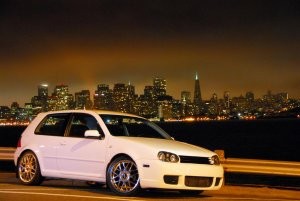The world of automotive enthusiasts is vast and varied, with niches for every type of engine and vehicle imaginable. For those passionate about diesel technology, particularly within the Volkswagen (VW) family, TDI engines hold a special place. TDI, which stands for Turbocharged Direct Injection, represents a line of diesel engines known for their impressive blend of fuel efficiency and robust performance. Websites like TDIClub.com serve as vital hubs for these enthusiasts, offering a wealth of information, community support, and resources.
TDIClub.com stands as a dedicated online forum for owners and aficionados of VW TDI vehicles. At its heart is a bustling discussion forum, where members share their experiences, technical knowledge, and passion for TDI engines. For newcomers and seasoned TDI enthusiasts alike, the forums are an invaluable resource.
Notably, TDIClub became a central point of information during the Volkswagen emissions scandal. The website quickly compiled a comprehensive FAQ thread, meticulously documenting the timeline of events, providing links to official reports, and aggregating statements from Volkswagen. This proactive approach solidified TDIClub’s role as a trusted source of information within the TDI community during a critical period.
Beyond the online realm, TDIClub fosters a strong sense of community through real-world interactions. Members frequently organize regional “Get-Together” events, or GTGs, providing opportunities for face-to-face交流, collaborative projects, and shared learning experiences. The highlight of the TDIClub year is TDIFest, an international annual gathering held each Labor Day weekend. TDIFest has a rich history, moving to different locations across North America each year, from Sturgeon Bay, WI in 2016, to previous locations like Sunday River Ski Resort in Maine, Ypsilanti, MI, Lexington, KY, and even stretching back to the inaugural event in Wilmington, NC in 2000. These events strengthen the bonds within the TDI community and provide hands-on learning and networking opportunities.
Becoming a member of TDIClub is straightforward and welcoming. Prospective members simply need to register for an account on the forums. Even those who prefer to observe rather than actively participate in discussions are encouraged to sign up, as membership unlocks access to a range of valuable features and resources. The community thrives on shared knowledge, and whether you are a seasoned mechanic or a curious owner, TDIClub offers a space to learn and connect with fellow TDI enthusiasts.
Volkswagen’s commitment to diesel technology in North America has been somewhat unique. While diesel cars are prevalent globally, VW stood out as the primary manufacturer offering diesel passenger vehicles in the US and Canada for many years, aside from luxury brands like Mercedes. This relative scarcity might contribute to the strong sense of community among TDI owners. The appeal of TDI engines lies in their remarkable combination of fuel economy and performance – a rare feat in the automotive world. This efficiency translates to impressive driving range, with anecdotal examples of drivers achieving extraordinary distances, such as exceeding 1400 miles on a single tank.
The evolution of TDI engines in North America can be categorized into three main generations. The first generation, utilizing distributor-type fuel pumps and VE engine designations, were 1.9L engines available up to 2004. The second generation marked the introduction of Pumpe-Düse (Unit Injector) engines, or PD engines, sold from 2004 to 2006. The latest generation, arriving in 2008, features common rail technology and is marketed as “Clean Diesel.” The brief absence of TDIs in 2007 was due to adapting to evolving emissions regulations in North America, highlighting VW’s ongoing efforts to refine and improve their diesel technology.
Delving deeper into each generation, the VE engines powered models like the A3 Jetta, B4 Passat (1995/1996), New Beetle (until 2003), Jetta IV (until 2003), and Golf (until 2003). These engines delivered around 90 horsepower and between 149 and 155 ft-lbs of torque, depending on the specific model. PD engines, found in New Beetles, Jettas, Golfs, and B5 Passats from 2004-2006, offered a performance bump, with the 1.9L versions producing 100hp and 177ft.lbs of torque. The 2.0L TDI PD in the B5 Passat further increased output to 134hp and 247 ft.lbs of torque. The pinnacle of PD power was the 5.0L V10 TDI in the Touareg, boasting 310HP and a massive 553 ft.lbs of torque.
The Common Rail “Clean Diesel” engines, introduced in late 2008, featured a slightly larger 2.0L displacement and delivered 140hp and 236 lbs-ft of torque. A 3.0L V6 version for the Touareg further boosted power to 221hp and 407 lbs-ft of torque. The 2.0L TDI was also slated for inclusion in subsequent Golf models, demonstrating VW’s continued commitment to TDI technology.
The popularity of TDI engines in North America is evident in sales figures. In 2005, TDI models accounted for over half of the sales in Canada where a TDI option was available. In 2006, the Jetta Wagon was exclusively offered as a TDI in Canada, showcasing the strong demand for these fuel-efficient and capable engines. In Europe, the TDI engine range is even broader, encompassing models from the ultra-efficient 1.2L Lupo to high-performance V10 TDI engines, demonstrating the versatility and adaptability of TDI technology across diverse vehicle platforms and performance requirements.
